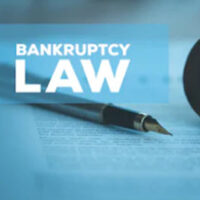Key Terms In A Bankruptcy Case: Part II

The U.S. Bankruptcy Code, and other state-specific laws that are relevant to personal and business bankruptcy cases, uses various terms to describe bankruptcy processes, debtors’ and creditors’ rights, and more. Our West Palm Beach bankruptcy attorneys are here to provide you with more of the terms you need to know in order to understand the ins and outs of a bankruptcy case in South Florida.
Discharge and Dischargeability
A discharge is the eradication of a debtor’s debts in a bankruptcy case, or what releases the debtor from responsibility or liability for dischargeable debts. The dischargeability of a debt will depend upon the type of debt. Many debts are dischargeable, but the U.S. Bankruptcy Code identifies specific types of debts that are non-dischargeable, such as family support debts or certain kinds of tax debts.
Disclosure
In a Chapter 11 bankruptcy case, a debtor (either an individual or a business) must submit a document known as a disclosure statement so that the reorganization plan can be considered by creditors and by the court.
Exemptions
In any bankruptcy case, certain kinds of assets are “exempt,” meaning that they will not be liquidated in a Chapter 7 case and will not need to be included in a reorganization bankruptcy repayment plan. Most states require debtors to use state-specific exemptions, which is true for debtors filing for bankruptcy in Florida.
Liquidation
Liquidation refers to selling a debtor’s assets to repay creditors.
Means Test
The means test is a test required for most individual debtors to prove their eligibility for Chapter 7 bankruptcy specifically. It determines whether a debtor’s resources and income are sufficiently limited to allow the debtor to file for a liquidation bankruptcy.
Objection
When a creditor or a trustee raises a concern about the dischargeability of a particular debt, this is known as an objection in a bankruptcy case.
Priority Claim
Certain types of creditors and their claims take priority over other creditors and their claims, and these are known as priority claims.
Reaffirmation
When a debtor agrees to continue to be responsible or liable for a certain debt that is dischargeable after the bankruptcy case is completed (and agrees that the debt will not be discharged), this is known as a reaffirmation agreement, or the debtor reaffirming the debt.
Reorganization
Reorganization is a term used to describe specific types of bankruptcies that are not liquidation bankruptcies. Chapter 11, Chapter 12, and Chapter 13 cases are types of reorganization bankruptcies.
Schedules
Debtors must file a number of documents that provide the court with information about their income, assets, and debts. These documents are known as schedules.
Trustee
A bankruptcy trustee is appointed to handle the bankruptcy estate. The trustee’s responsibilities vary depending upon the type of bankruptcy.
Contact a Bankruptcy Lawyer in West Palm Beach
Whether you have questions about specific bankruptcy terminology or issue, or you need representation in your bankruptcy case, one of the experienced West Palm Beach bankruptcy lawyers at Kelley Kaplan & Eller can help. Contact us today for more information about individual or business bankruptcy in South Florida.
Sources:
law.cornell.edu/uscode/text/11
leg.state.fl.us/statutes/index.cfm?App_mode=Display_Statute&URL=0100-0199/0196/0196ContentsIndex.html



